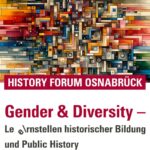
HISTORY FORUM OSNABRÜCK; Lale Yildirim – Didaktik der Geschichte, Univ. Osnabrück (Web)
Zeit: 17.06.2024
Ort: Osnabrück
Gender and Diversity prägen derzeit in besonderer Weise die politischen und publizistischen Debatten und werden bemerkenswert häufig äußerst kontrovers und nicht selten konfrontativ diskutiert. Geschichte ist immer öffentlich und somit auch stets durch soziale Kategorien und Ungleichheiten geprägt. Diversität, ob migrations- oder genderinduziert, bestimmt auch in demokratischen Gesellschaften die Chancen einer selbstverständlichen Beteiligung an Geschichts- und Erinnerungskultur. Weder Universität noch Schule sind geschlechtsneutrale Räume. Als spezifische Orte der Sozialisation fördern sie nicht geschlechterspezifische Zuschreibungen sowie Wahrnehmung, sondern sie prägen und bestimmen darüber hinaus historisches Denken und Lernen sowie die Geschichts- und Erinnerungskultur. Geschlechtliche und sexuelle Vielfalt werden jedoch selten machtkritisch thematisiert oder reflexiv erörtert.
Die Vernachlässigung der Auseinandersetzung mit geschlechtlicher und sexueller Vielfalt in Gesellschaft, Universität und Schule hat direkte Auswirkungen auf Biografien und Gesellschaft. Stereotype und strukturelle Zuschreibungen führen nicht nur zu geschlechterspezifischer Diskriminierung, sondern auch zu binären Vorstellungen und Konstruktionen von Vergangenheit als Geschichte ohne Analyse der Verflechtungen von Heterosexualität und Geschlechternormen mit Macht- und Ungleichheitsstrukturen. Bildungsinstitutionen sollten zu einem reflektierten Umgang mit Diversity beitragen. Gendersensibilität ist essenziell für Geschichte und zugleich grundlegend für Partizipation an Geschichts- und Erinnerungskultur in einer demokratischen und pluralen Gesellschaft.
Das HISTORY FORUM OSNABRÜCK lädt mit der thematischen Zentrierung auf Gender and Diversity zum Mitdenken und Mitdiskutieren über Chancen und Herausforderungen von Gender and Diversity für historische Bildung und Public History sowie für demokratisch-kritische Partizipation in der pluralen Gesellschaft ein und fokussiert dabei mit diesem Thema verbundene Leer- und Lernstellen.
Programm Continue reading

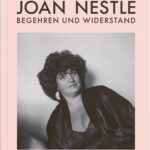 Spinnboden Lesbenarchiv und Bibliothek e.V.
Spinnboden Lesbenarchiv und Bibliothek e.V. 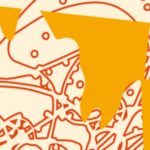 Ringvorlesung des Referats Genderforschung an der Univ. Wien; Organisation: Tomi Adeaga
Ringvorlesung des Referats Genderforschung an der Univ. Wien; Organisation: Tomi Adeaga 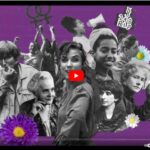 i.d.a.-Dachverband: Verbundkatalog META
i.d.a.-Dachverband: Verbundkatalog META 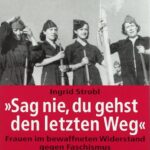 Frauenhetz in Koop. mit STICHWORT
Frauenhetz in Koop. mit STICHWORT